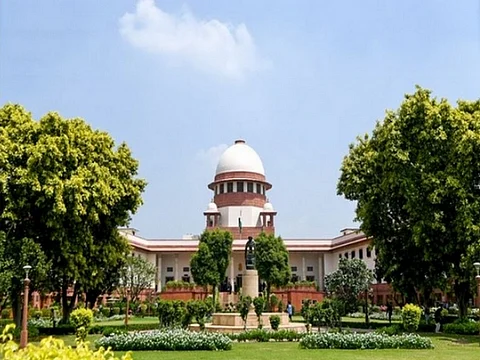

Supreme Court’s landmark judgment on Tuesday, April 8, that Tamil Nadu Governor RN Ravi’s reserving of 10 bills readopted by the Assembly on November 18, 2023 for President’s assent was erroneous and the bills be “deemed to have been cleared” is expected to clear the decks for appointing vice-chancellors (VCs) to at least eight of the 10 state universities that remain headless now.
Besides certain other provisions, the 10 bills mainly included amendments to the original acts of 18 state-run universities to transfer the powers of appointing and removing VCs from the governor to the state government.
Contrary to popular perception and many media reports, the bills did not include provisions to remove governor from being the varsities' chancellor. Currently, the governor serves as chancellor of 20 of the 22 state universities while the Chief Justice of Madras High Court and Chief Minister respectively serve as Chancellors of the Tamil Nadu National Law University and The Tamil Nadu Dr JJayalalithaa Music and Fine Arts University, stated a report by The New Indian Express.
For the 18 universities covered in the 10 bills, the state government will henceforth retain the powers to constitute the VC search panel and select a VC based on the panel’s recommendations. In some of these universities, a preliminary reading of the amendments indicated that the governor will continue to retain the power to send a nominee to the search panel.
Of the 20 universities where governor serves as Chancellor, the two excluded by these 10 bills are the University of Madras (UoM) and the Tamil Nadu Physical Education and Sports University (TNPESU).
A separate bill passed by the Assembly to amend the act governing UoM to shift the power of appointing VCs from governor to government was reserved by Ravi for President’s assent prior to November 18, 2023 and therefore it did not seem to be included in the ambit of SC’s verdict on Tuesday.
Neither was the Tamil Nadu Siddha Medical University bill of 2022, which was enacted to set up a new university for Indian medicine with CM as Chancellor. This was also reserved by the Governor for President’s assent prior to November 18, 2023.
Sources said the government is expected to take measures to fill the VC posts in the eight universities soon. These are Anna, Bharathiar, Madurai Kamaraj, Tamil Nadu Teachers Education, Annamalai, Tamil, Bharathidasan and Tamil Nadu Agricultural universities.
Of the eight, while convenor’s committees are managing the affairs in seven, the governor made the Registrar as VC (in-charge) in TNAU. The fate of UoM and TNPESU is unclear.
The delay in appointing of VCs was mainly due to the governor’s insistence in adding a nominee of UGC Chairperson to the search panel, which the government opposed, according to the report by The New Indian Express.
Noted academician SP Thyagarajan said that with the state government now having the power to appoint VCs to most universities, it should ensure that eminent persons with clean reputation are appointed. “To ensure the quality of higher education, it is important to ensure that appointment of V-Cs are not politically influenced by the party in power," he said.
(With inputs from Pon Vasanth BA)
